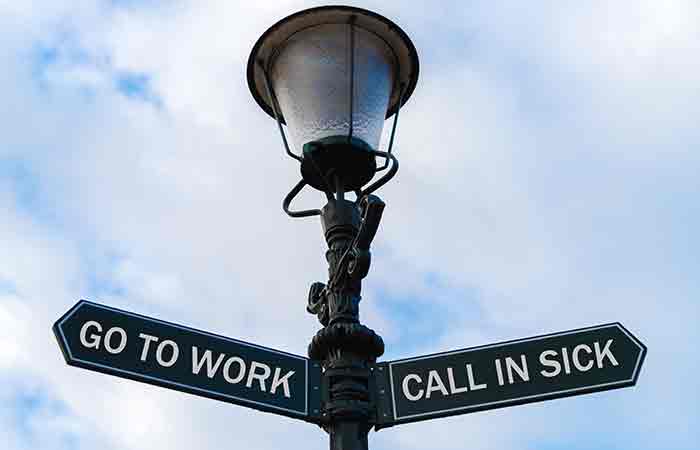 Almost a third (30%) of employees have admitted that they have or would consider calling in sick to work despite feeling healthy, according to new research from MetLife UK.
Almost a third (30%) of employees have admitted that they have or would consider calling in sick to work despite feeling healthy, according to new research from MetLife UK.
Published to coincide with National Sickie Day (5 February 2024), the day when most workers are likely to phone in sick, the insurance and employee benefits provider found that 40% did so as they felt burnt out. Almost half (47%) of women and 31% of men cited this reason.
Almost a quarter (23%) took time off to attend a necessary appointment, while 17% did so due to emergency childcare issues, and 15% to care for a relative. Other reasons include for a break from work (31%), to avoid an ongoing issue (13%), to miss a deadline or avoid doing a piece of work (8%) and to get out of a meeting or pitch (8%).
Of those who have previously called in sick, 45% took up to a week off, 31% took up to three days, and 17% took less than a day.
Adrian Matthews, head of employee benefits at MetLife UK, said: “While taking time off work should be encouraged in the workplace and is a vital part of balancing home and work life commitments and preserving mental health, it’s important to understand if there are bigger issues at the root. Not only might there be employees who are struggling due to burnout or worrying about childcare, but these sick days can quickly stack up and could cost businesses significantly in time, money and potential for long-term retention issues.
“It’s critical for businesses to deploy regular, effective and varied communication about workplace employee health and wellbeing benefits and other supportive policies available. Whether that’s mental health support and wellness sessions, counselling, bereavement support or financial protection. Doing this consistently throughout the year will help maintain engagement, productivity, and overall happiness at work – as well as helping to remove any stigmas attached with needing a break – potentially leading to less longer-term sickness absence.”